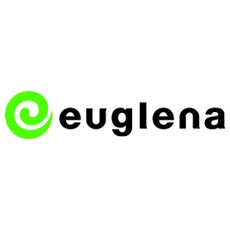euglena Co.
euglena Co.
Building a sustainable farming system in Bangladesh and providing farmers with better livelihood opportunities.
BCTA MEMBERSHIP STATUS
Alumni
SECTOR
Agriculture, Food & Beverage
HEADQUARTERS
Japan
REGION OF INITIATIVE
Asia & Pacific
SDG CONTRIBUTION
RELATED NEWS
Japanese company euglena Co. joined the Business Call to Action (BCtA) in November 2019 with a commitment to contract more than 10,000 farmers in Bangladesh through Grameen euglena, a joint venture with the Grameen Krishi Foundation in Bangladesh headed by Dr Muhammad Yunus.
In collaboration with the World Food Programme (WFP), euglena Co. also aims to provide mung beans for 21,000 Rohingya people living in Cox’s Bazar.
In Bangladesh, 48 percent of the total workforce is engaged in agriculture. About 70 percent of the country’s population lives in rural areas and faces poverty. Moreover, about 60 percent of households in rural areas do not have access to a sufficient area of land to maintain their subsistence. In many cases, farmers work on land they do not own at very low pay. As a result, they often fall into extreme poverty.
Farmers harvest the mung bean in Bangladesh.
Mung beans are needed to produce bean sprouts, one of the most consumed vegetables in Japan. However, almost all the supplies of mung beans in Japan are imported and about 77 percent are from China while 22 percent are supplied by Myanmar according to 2018 trade statistics. On the other hand, mung bean prices have been increasing in the last 13 years ($660 per ton in 2004, and $2,380 per ton in 2017). For this reason, it would be beneficial for Japan to have another source of mung beans to secure the sustainable production of bean sprouts.
Mung beans have long been produced and eaten by locals in Bangladesh. In Bangladesh, a trial harvest of mung beans started in 2010. After the implementation of a feasibility study on the contribution of a “development import plan demonstration project,” supported by the Japan External Trade Organization (JETRO) in 2010, large-scale harvest and exports to Japan began in 2012.
Grameen euglena employs contract farmers and teaches them how to produce mung beans with better yield and quality. Harvested mung beans are purchased by Grameen euglena at higher than market price. Adequate-sized mung beans for producing bean sprouts are selected, exported to Japan and supplied to Japanese bean sprout producers. The rest of the mung beans are sold at cost in Bangladesh. This contributes to the improvement of nutrition in Bangladesh because mung beans contain proteins, minerals and vitamins.
Grameen euglena also opens multiple channels for farmers to sell their mung beans. According to their report, the income of local farmers has increased since they joined euglena Co.’s mung bean project. Along with this, euglena Co. has also initiated several training programs for farmers and provided a mobile app for them to measure their field land area for more efficient land management.
Since 2018, the number of farmers involved in the project has exceeded 8,600. Furthermore, women were actively involved in this project, participating in the harvesting, dust removal and sorting process. The company contributes by selling mung beans to a World Food Programme project funded by the Government of Japan, which distributes mung beans to Rohingya refugees via e-vouchers given by WFP.




